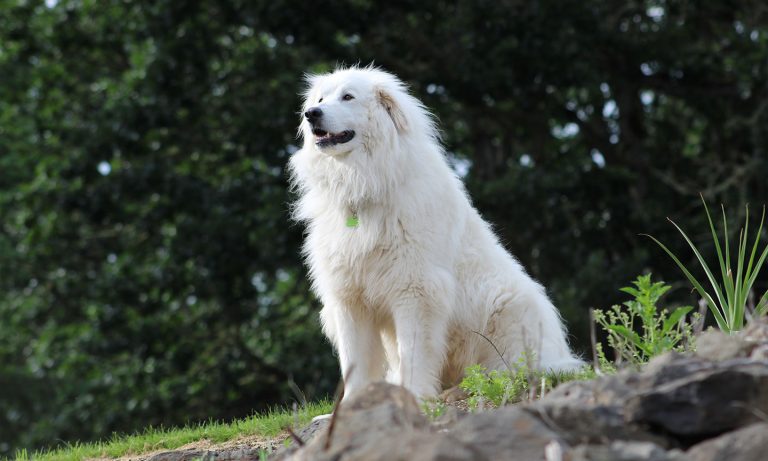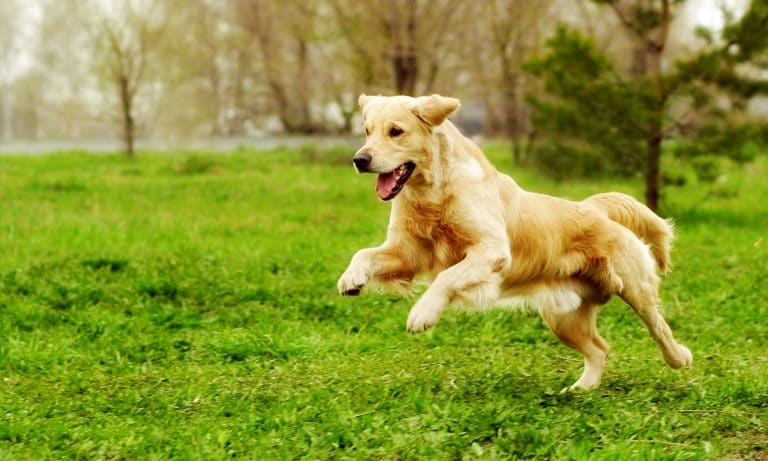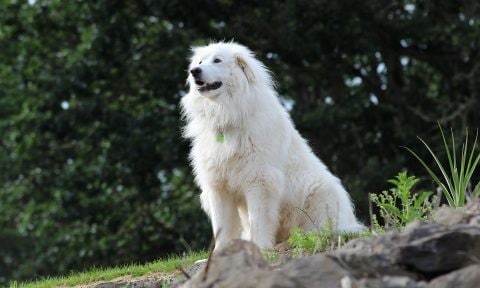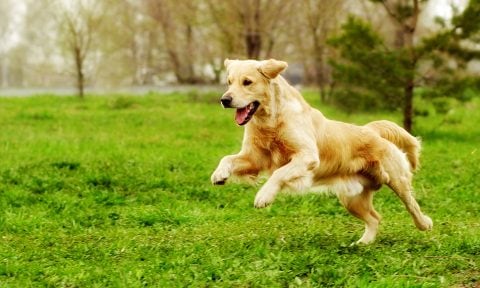Great Pyrenees vs Golden Retriever

Breed Snapshot
Best For
The Great Pyrenees is a majestic and gentle giant, originally bred to guard livestock in the snowy Pyrenees Mountains. Known for their thick white coat, large-and-in-charge size and calm demeanor, they make loyal companions, thriving...
The Great Pyrenees is a majestic and gentle giant, originally bred to guard livestock in the snowy Pyrenees Mountains. Known for their thick white coat, large-and-in-charge size and calm demeanor, they make loyal companions, thriving in homes with space to roam.
Great Pyrenees Temperament
The Great Pyrenees’ temperament exudes patience and affection. They’re generally friendly and well-suited to family life. Letting your Great Pyrenees play with kids is more than acceptable as long as the children aren’t too rough and rowdy. And as a former livestock guardian, Pyrs have close contact wit...
The Great Pyrenees’ temperament exudes patience and affection. They’re generally friendly and well-suited to family life. Letting your Great Pyrenees play with kids is more than acceptable as long as the children aren’t too rough and rowdy. And as a former livestock guardian, Pyrs have close contact with various farm animals in their blood, which means they typically get along well with other dogs and even cats in the home.
Even though the Great Pyrenees is known to be a gentle pet, their history is rooted in serving as guard dogs. Because this dog was bred as a flock guardian, the breed can be strong-willed, so early socialization and training are essential.
Their characteristics also include a high level of competency thanks to their years of service as guard dogs atop snowy mountains. Neither cold weather nor boredom phase a Pyr—this pup is quite used to the slow pace of watching over sheep for hours.
Luckily for dog lovers, these serene Great Pyrenees traits transfer nicely to a quiet home life (maybe watching reality TV or hunkering down with a good novel?). Of course, getting outside is part of the plan with dogs, so pet parents who can offer moderate exercise will please both the Great Pyrenees’ personality and physicality.
Great Pyrenees Traits

Breed Snapshot
Best For
Golden Retrievers, known for their friendly disposition, thrive on companionship and exercise. Intelligent and adaptable, these loyal dogs make ideal family pets for those who can provide lots of love and mental stimulation.
Golden Retriever Temperament
The Golden Retriever personality is naturally outgoing and eager to please. Although individual personalities can vary, most Goldens love people and social outings, thriving in homes with lively environments. Generally, Goldens are born to mingle and see everyone as a potential new best friend. Whenever they meet someone ne...
The Golden Retriever personality is naturally outgoing and eager to please. Although individual personalities can vary, most Goldens love people and social outings, thriving in homes with lively environments.
Generally, Goldens are born to mingle and see everyone as a potential new best friend. Whenever they meet someone new, they seem to say, “Hi! I am so glad we met. Do you have a ball to throw for me now that we’re friends?”
That friendly demeanor, coupled with their moderate weight and height, make Golden Retrievers excellent dogs for families with young children. However, not all Goldens are without challenges. When bringing a Golden home, cautiously introduce them to household members, especially smaller ones like children and cats, and be sure to teach small children how to behave and interact with dogs as well.
Goldens are also intelligent; they’re quick learners and easy to train. They were and are bred to be gundogs, retrieving waterfowl with their soft mouths, a characteristic that allows them to carry delicate items without applying excessive pressure. They often serve as guide dogs, therapy dogs and search-and-rescue dogs. For optimal health, Golden Retrievers need ample mental and physical exercise.
Keep in mind, though, that even the best-trained Goldens can be mischievous. So be prepared for occasional capers and learn to laugh with your dog as they “help” you unload the laundry basket.




